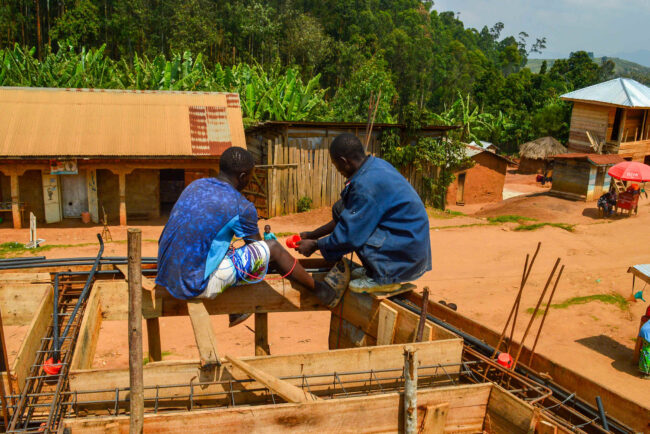Despite resistance from the Wazalendos, or “patriots,” self-defense groups allied with the military, M23 has continued to advance, capturing numerous communities in eastern DRC, including Kirumba. In January, M23 seized Goma, the provincial capital of North Kivu, before advancing toward South Kivu’s capital, Bukavu, which it conquered a month later.
In most cases, Congolese authorities fled as M23 approached, leaving them free to set up a parallel administration to manage local affairs, from construction permitting to policing and administration of the region’s lucrative mining resources. Some officials from the deposed government joined AFC/M23 and now work directly for the armed groups. Elsewhere, civil servants who refused to cooperate were replaced, while civil society leaders and customary chiefs were tracked, threatened or replaced, according to the UN report. In Nyiragongo, AFC/M23 administrator Ephrem Kabasha reportedly abducted and tortured civil society leaders. The armed groups have also occupied public buildings and destroyed archives, erasing institutional memory and land records — actions tied to their plans for resettling Congolese refugees from Rwanda into North and South Kivu.
While government schools and health clinics in occupied areas continue to function on a limited basis, and Congolese civil servants who remain in their posts continue to receive salaries, some agencies, like public banks, have ceased operations altogether. Many civil society organizations have also closed.
On August 12, AFC/M23 announced steps to establish their own judicial system in the territory under the coalition’s control. In a joint statement, Bertrand Bisimwa, the civilian president and political leader of M23, and the AFC’s Nangaa named 25 members to a commission that will set up courts and tribunals in land seized in the conflict: “After more than six months of security and social stabilization, the restoration of judicial authority is a strategic priority.”
Since their arrival in Kirumba more than a year ago, AFC/M23 has not seemed particularly interested in tax collection. In the void, residents eager to build permanent structures began doing so without AFC/M23 permits. Some construction projects started under government control and halted due to the war were restarted. Now, a mix of residential and commercial construction is in progress in nearly every neighborhood of Kirumba.
But the AFC/M23 administration has not taken the same approach everywhere: In Goma, for example, merchants are already complaining about the exorbitant taxes imposed by the armed group. Meanwhile, the war has ground important parts of the economy to a halt. When M23 seized Goma and Bukavu, banks shut down. By July, according to the United Nations Group of Experts, no bank was operating in territory under AFC/M23 control.
Military and diplomatic efforts to resolve the crisis have been underway for months, with the Congolese government calling for the total withdrawal of M23. The DRC-Rwanda agreement signed in Washington, D.C. in June aimed to ease tensions between the two countries. At the same time, the DRC-M23 Declaration of Principles in Doha, signed in July under the auspices of Qatar, called for a ceasefire and outlined a roadmap for bilateral negotiations that were supposed to start in August. Both sides have since accused the other of launching attacks in violation of the agreement.

